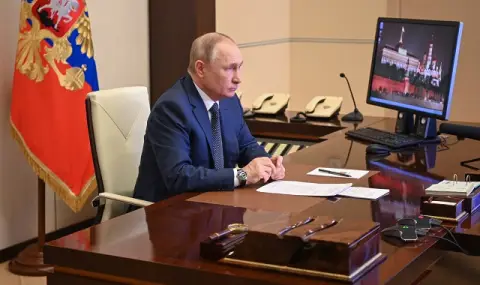Russian Foreign Minister Sergei Lavrov reiterated the demand for Ukraine to give up sovereignty and territorial integrity as a precondition for starting peace talks. Russia considers Ukraine's goal of liberating its territory up to its internationally recognized 1991 borders an "ultimatum". Lavrov stated this in an interview with TASS from the Kremlin, published on December 30.
This is what the Institute for the Study of War (ISW) writes in its latest analysis.
The Kremlin is likely trying to impose unrealistic demands on Ukraine that violate international law in order to hinder legitimate, good-faith negotiations.
The ISW continues to assess that Russia is not interested in genuine negotiations and will continue to pursue complete surrender.
The Kremlin appears to be prioritizing the requirements for generating Russia's armed forces and domestic political stability over efforts to alleviate economic pressure and labor shortages in 2025. Russian President Vladimir Putin signed a decree on December 30 that requires migrants who entered illegally to apply for legal status or leave the country by April 30, 2025.
Migrants can obtain legal status after undergoing health checks, passing an exam in Russian language, history and law; and by paying off all debts or signing a military service contract with the Russian Ministry of Defense (MOD). Russia is suffering from a labor shortage of 1.5 million people, and Putin’s decree is likely to further worsen the situation in a number of industries.
It remains unclear whether Russian authorities will implement the decree. The decision to deport migrants would indicate that Russian authorities are prioritizing appeasing grievances among Russia’s pro-war ultranationalists. The decision not to implement it would indicate that they are more concerned with overcoming Russia's economic problems.
US President Joe Biden announced an additional $2.5 billion military aid package for Ukraine on December 30.
The package is funded with $1.25 billion from the Presidential Authority and $1.22 billion from the Ukraine Security Assistance Initiative and will include thousands of artillery rounds, thousands of missiles and hundreds of armored vehicles. The US Department of Defense said the package also includes: ammunition for National Advanced Surface-to-Air Missile Systems (NASAMS); HAWK air defense ammunition; Stinger missiles; counter-unmanned aerial vehicle (c-UAS) ammunition; ammunition for Highly Mobile Artillery Rocket Systems (HIMARS); High-velocity Anti-Radiation Missiles (HARMs); Javelin and AT-4 anti-armor systems; Tube-launched, optically-guided, wire-guided (TOW) missiles; and other materials.
On December 30, Russia and Ukraine conducted one of the largest prisoner exchanges of 2024, resulting in the return of 189 Ukrainian prisoners of war, some of whom had spent more than two years in Russian captivity since early 2022. Ukrainian President Volodymyr Zelensky announced that some of the returned Ukrainians had defended Ukrainian positions at the Azovstal steel plant, the Chernobyl Nuclear Power Plant (NPP), and Snake Island in early 2022.
Zelensky added that Ukraine had also returned two civilians who had been captured by Russian forces during the siege of Mariupol. The Ukrainian Coordination Headquarters for the Treatment of Prisoners of War reported that this exchange of prisoners of war is one of the largest exchanges of prisoners of war since January 3, 2024, and that Ukraine has returned 173 privates and sergeants and 14 officers: 87 servicemen from the Ukrainian Armed Forces, 43 from the National Guard, 33 from the Ukrainian Border Guard Service and 24 from the Ukrainian Navy.
The Coordination Headquarters for the Treatment of Prisoners of War added that some of the servicemen also participated in hostilities in the Kursk, Luhansk, Donetsk, Kharkiv, Zaporizhzhia and Kherson regions. The Coordination Headquarters for the Treatment of Prisoners of War noted that a total of 3,956 Ukrainian prisoners of war have returned to Ukraine, of which 1,358 in 2024. The Russian Ministry of Defense announced on December 30 that Russia had exchanged 150 Ukrainian prisoners of war for 150 Russian prisoners of war.
Russian border guards withdrew from the Agarak checkpoint on the Armenia-Iran border on December 30 after controlling the checkpoint for more than 30 years. Armenian Prime Minister Nikol Pashinyan announced that only Armenian border troops began patrolling the Agarak checkpoint without Russian forces on December 30, indicating that the Russian border guards likely withdrew from the area in accordance with an October 2024 agreement that Armenian border guards would regain control of the checkpoint as of January 1, 2025.
Pashinyan added that Russian border guards have been operating at the Agarak checkpoint since 1991. Russia's withdrawal comes five months after Russian border guards completed their withdrawal from Yerevan's Zvartnots International Airport and further demonstrates Armenia's commitment to reducing bilateral security relations with Russia.
